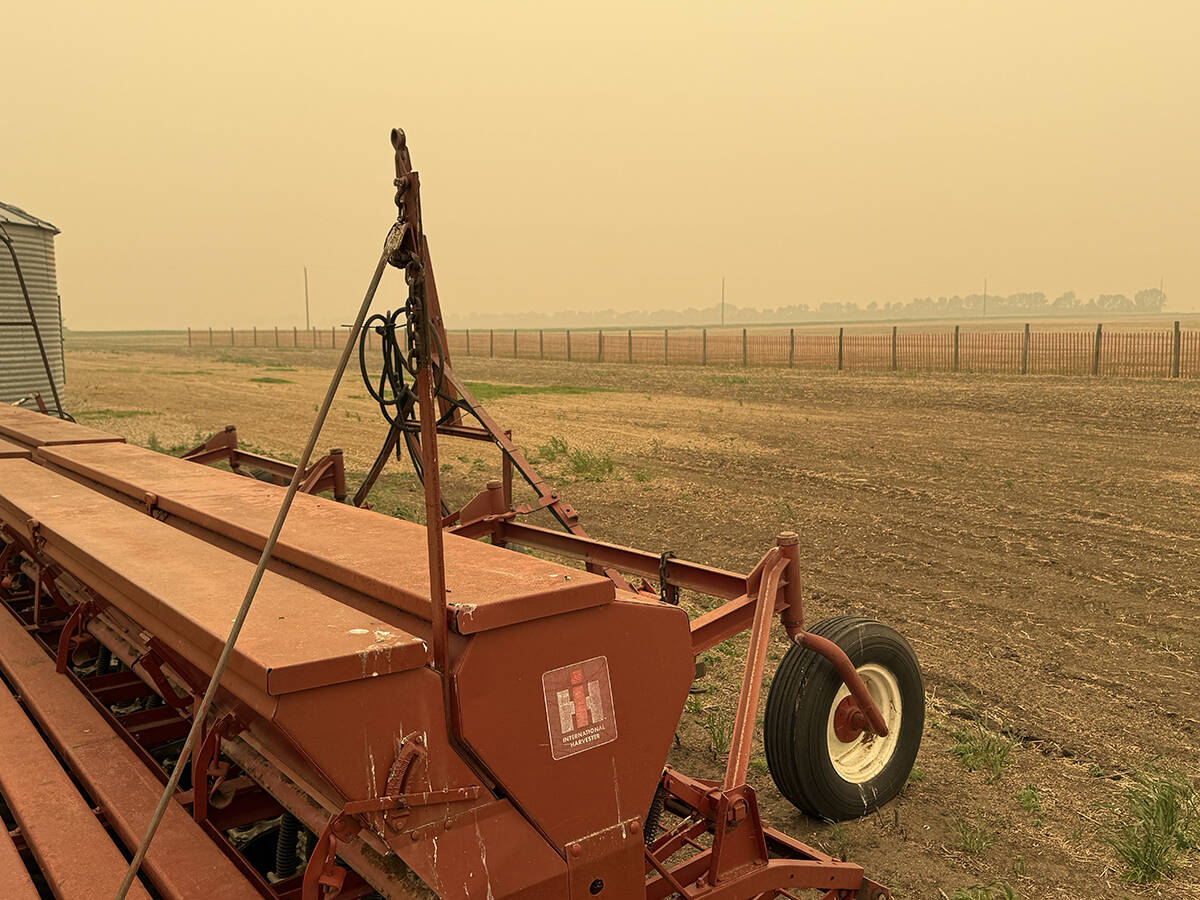Despite election campaign controversy that led to speculation he could lose his cabinet spot, Saskatchewan MP and farmer Gerry Ritz remains agriculture minister in the new Conservative government. ![]()
However, in the new cabinet unveiled by prime minister Stephen Harper Oct. 30, a series of new faces hold other portfolios that affect agriculture and the rural West.
Stockwell Day, a British Columbia MP and former leader of the Canadian Alliance, has been moved from the public security portfolio to international trade.
Read Also

Wildfires have unexpected upside this year
One farmer feels smoke from nearby wildfires shrouded the July skies and protected his crop from the sun’s burning rays, resulting in more seeds per pod and more pods per plant.
He will lead Canada’s policy on how to revive World Trade Organization talks.
Ottawa MP John Baird, former environment minister, becomes transport minister with a mandate to react to the conclusions of the Canadian Transport Commission railway service review. He also will face calls from segments of the farm sector to call a review of railway costing.
Baird will be assisted by long-time rural Alberta MP Rob Merrifield, brought into the cabinet as minister of state for transport.
Rookie MP Leona Aglukkaq from Nunavut, the first Innu cabinet minister, takes over the massive health portfolio that includes responsibility for the Pest Management Regulatory Agency.
And veteran Saskatchewan MP Lynne Yelich, elected in 2000 in a Saskatoon riding, becomes a junior minister of state for western economic diversification.
She is one of 11 women in cabinet, tied with the last Liberal cabinet for the most women ministers in history.
Re-appointment of Ritz as minister responsible for agriculture and the Canadian Wheat Board drew immediate positive reaction from some major Canadian farm groups that have to work with him.
“Farm groups across Canada are eager to continue their work with minister Ritz to bring stability to the agriculture sector in this uncertain economic climate,” Canadian Federation of Agriculture vice-president Ron Bonnett said in a CFA statement Oct. 30.
“Certainly, we feel it’s positive that with an experienced minister, we’ll avoid the time delays that a new minister may have required.”
Part of that “experience” was a controversial appearance by Ritz at last year’s CFA annual meeting where the minister told the country’s largest farm lobby that it did not count in the debate over the future of the Canadian Wheat Board because it was not supporting the Conservative drive to end the barley monopoly.
Grain Growers of Canada, which supports the government CWB policy, also welcomed Ritz back to his portfolio Oct. 30.
“Over the last term of Parliament, the minister has proven himself to be a strong advocate for the wishes of business-oriented grassroots farmers,” GGC president Ross Ravelli from Dawson Creek, British Columbia said in a statement.
The agenda the GGC approved included ending the CWB monopoly, negotiating an “aggressive” World Trade Organization deal, changing seed variety registration rules and completing the rail level-of-service review.
“We believe the re-instatement of minister Ritz shows this government is committed to moving forward on these progressive policy initiatives,” said Ravelli.
Ritz did not make a public statement about his agenda in the portfolio.
Opposition Liberals condemned his re-appointment, arguing that his jokes on a government conference call during the listeriosis crisis that killed 20 Canadians, later leaked to media by a bureaucrat on the line, should have disqualified him.
He said the daily news of spreading reports of disease was like “death from a thousand cuts, or should I say cold cuts.” He also joked that he hoped a report of a death in Prince Edward Island was Liberal agriculture critic Wayne Easter.
Liberals also said Ritz failed Canadians by proposing a weakening of food inspection systems.
“Mr. Ritz not only failed Canadians on food safety, he was busy making jokes while people were dying of listeriosis,” Regina Liberal MP Ralph Goodale said in a party statement. “By re-appointing Mr. Ritz to agriculture, Mr. Harper is putting his stamp of approval on the handling of the crisis.”
The fact that Ritz remains minister ensures that in the next Parliament that opens Nov. 18, opposition MPs will make food safety an issue both in the House of Commons and in the Commons agriculture committee.














